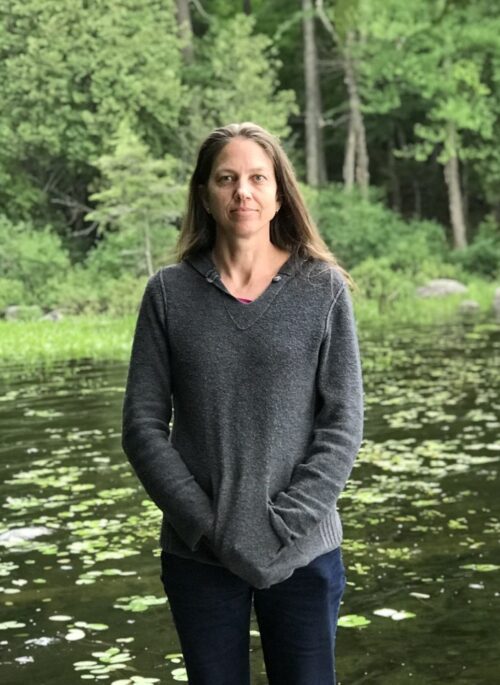I went into labor with my third child on a beautiful day in late spring. On the way to the hospital we stopped to walk in one of our suburban stream-valley parks, hoping to speed the progression of labor. The path followed the stream among tulip poplars that must have been growing since before I was born, their columnar trunks far too large to be circled by my arms. Leaves so new their tissues were still soft stirred on slender stems with the slightest breeze, tinging the fresh shade that filtered through the canopy to a faint green, so that even the air seemed alive with spring.
During the process of giving birth, the conscious mind relinquishes control as the body’s deeper, intuitive knowledge takes over. The resulting state is similar to one I have experienced when hiking past the point of exhaustion. Scottish writer and poet Nan Shepherd described the feeling well when she wrote of hill walking in the Cairngorms: “Walking thus, hour after hour, the senses keyed, one walks the flesh transparent. But no metaphor, transparent or light as air, is adequate. The body is not made negligible, but paramount. Flesh is not annihilated, but fulfilled. One is not bodiless, but essential body.” In this deeply embodied state of being, the self dissolves, or perhaps disperses throughout the landscape, the body becoming part of the world’s body. “I [was] no longer myself but part of a life beyond myself,” as Shepherd puts it.
Like Shepherd, I too was aware of myself as connected to the world in profound interdependence, an understanding that philosopher and biologist Andreas Weber refers to as “enlivenment.” Every living thing around me had been animated by the same irresistible force, a “wordless insistence” to which my body was now yielding, “bowing / then kneeling / to each contraction as it came.” The force that was driving my daughter into the world was the same force that drove the tulip poplar’s leaves to burst from their buds and their winged seeds to root themselves in the soil.
As we walked, I stopped now and then to lean against a tree as the slow wave of a contraction crested and subsided. Both the trees and I were only temporary vessels for the life the world seeks to preserve at all costs, indifferent to the individual beings that carry it in turn. “My sisters I thought if I thought at all,” I wrote in the poem. “Somehow the term did not seem wrong.” Though the trees retained their strangeness, their unknowable other-ness, I felt I was one among equals, and I listened hard, trying to understand what they had to say.
My thoughts fragmented into moments of crystalline perception, and white space entered the resulting poem like the breeze that lifted the leaves of the trees. The landscape bore the marks of a recent flood, with grasses combed by rushing water and clumps of detritus caught in the bushes. Many of the trees leaned downstream, telling me of the force of the repeated floods they had endured. Feeling the movement in their trunks as they swayed in the wind, I sensed an abiding acceptance akin to the deep acquiescence I felt toward the anticipated pain and effort of birth. Just as I felt myself dissolving out into the landscape, I felt the landscape dissolving into me. “Deep in my interior,” I wrote, “the forest the water rising.”




